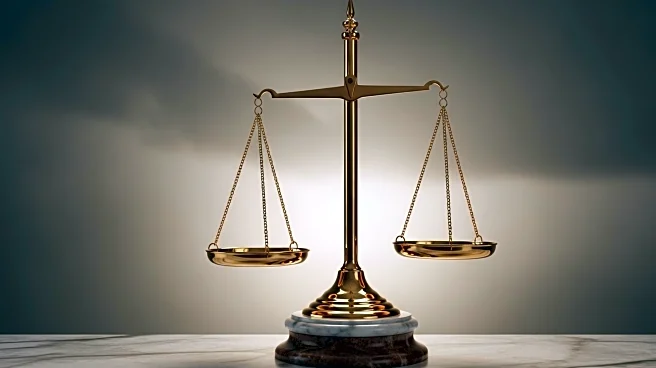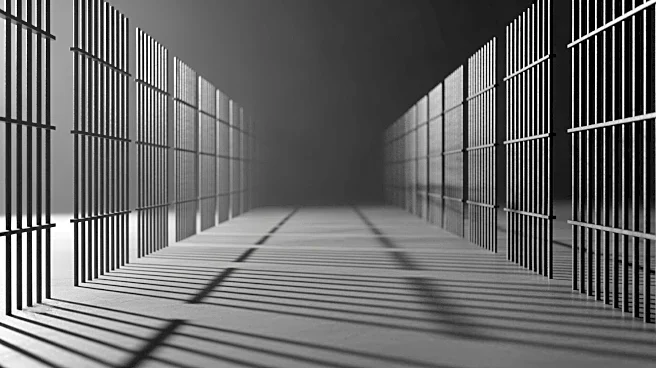What is the story about?
What's Happening?
France's newly reappointed Prime Minister Sebastien Lecornu has announced a new government in an effort to address the country's ongoing political crisis. The Cabinet includes familiar faces from President Emmanuel Macron's centrist camp, allied conservatives, and individuals from outside the political sphere. The new government faces immediate challenges, including producing a budget and managing political divisions within the National Assembly. The conservative Republicans party has expelled six members who joined the government, highlighting the fractured political landscape. Key appointments include Catherine Vautrin as the new defense minister and Laurent Nunez as the interior minister. Jean-Noel Barrot remains as Foreign Minister, tasked with international diplomacy, including a trip to Egypt for a Gaza ceasefire ceremony.
Why It's Important?
The formation of a new Cabinet is crucial for France as it seeks to stabilize its political environment and reassure businesses and investors. The political turmoil has implications for France's economic policies, particularly in addressing ballooning debt and poverty. The government's ability to navigate these challenges will impact France's international standing and its role in European security, especially concerning military support for Ukraine. The political divisions within the National Assembly could lead to a vote of no confidence, further destabilizing the government. The expulsion of Republican members who joined the Cabinet underscores the deep political fractures that could hinder effective governance.
What's Next?
Prime Minister Lecornu and his government must seek compromises to avoid a vote of no confidence in the National Assembly. The government may need to reconsider unpopular policies, such as the pension reform, to gain broader support. The political landscape remains uncertain, with calls for new elections from the far-right National Rally party and demands for President Macron's resignation from the far-left France Unbowed. The government's ability to produce a viable budget and address economic challenges will be critical in maintaining stability and preventing further political unrest.
Beyond the Headlines
The political crisis in France highlights broader issues of governance and public trust in political institutions. The deep divisions within the National Assembly reflect a polarized society, with significant implications for democratic processes and policy-making. The government's approach to handling economic challenges and political divisions will be closely watched by international partners and could influence France's role in global affairs. The situation underscores the importance of political compromise and effective leadership in navigating complex political landscapes.















